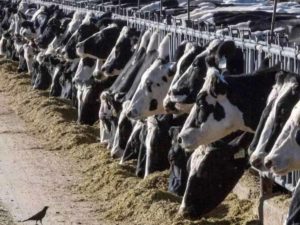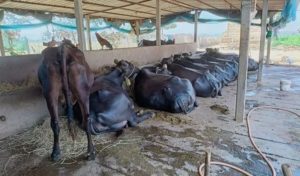The first is a co-investment with Synlait Milk and Danone, aiming to understand how to measure and manage soil health to boost environmental and economic performance on New Zealand farms, O’Connor says.
The Government will contribute $2.8 million to the $3.85 million five-year project.
“We simply cannot take soil health for granted. It’s the basis of our food systems, and also New Zealand’s economic health,” says O’Connor.
AgResearch will work with Synlait Milk and Danone supplier farmers on the project, which will run across ten commercial dairy farms in Canterbury, Southland, and Waikato.
“In each region the farms will be paired for comparison based on location, soil type, and farm performance. Soil health will be measured within each farm, with one paddock in each managed conventionally, and another using regenerative farming practices,” says O’Connor.
“A focus on soil health will be a key part of our industry’s journey to keep making milk in the most sustainable way. We are proud to have six Synlait farmers working alongside their industry peers to innovate, experiment, and lead our sector to explore the benefits of regenerative practices,” says Hamish Reid, Synlait director – sustainability, brand, beverages and cream.
“Ultimately, we want to support farmers and provide solid guidance based on scientific evidence,” says Danone New Zealand director Steve Donnelly.
“We are proud to leverage Danone’s significant global expertise in regenerative agriculture to support new on-farm practices in New Zealand across the dairy sector. This project is a pioneering step in Aotearoa to build new farming models that help mitigate climate change, preserve or restore soil quality and secure farmer welfare, all while preserving the quality of New Zealand dairy,” says Donnelly.
The second project will see the Government contribute $2.2 million to a five-year research project aimed to boost New Zealand farm yields by attracting beneficial insects to farms using specifically designed native planting.
“By looking at the relationship that specific native plants have with insects, the researchers will be able to see which ones increase pollination and tackle pests most effectively,” says O’Connor.
The second project is based in the Canterbury region and will be led by Plant and Food Research, with a range of industry partners investing just over $1 million into the work.
45 Canterbury farms will plant land that is currently under-utilised – such as fence lines, road verges and watercourses – with local native plants that have been proven to support and maintain beneficial insect life.
“By increasing the number of pollinating insects, the project team expects to see increased yields across the farms, which will lead to improved economic and environmental outcomes for the farmers involved.”
“Increasing the number of predator insects to tackle pests could also reduce the use of pesticides and insecticides.”
Both projects are being funded through the Ministry for Primary Industries’ Sustainable Food and Fibres Futures fund (SFF Futures).










